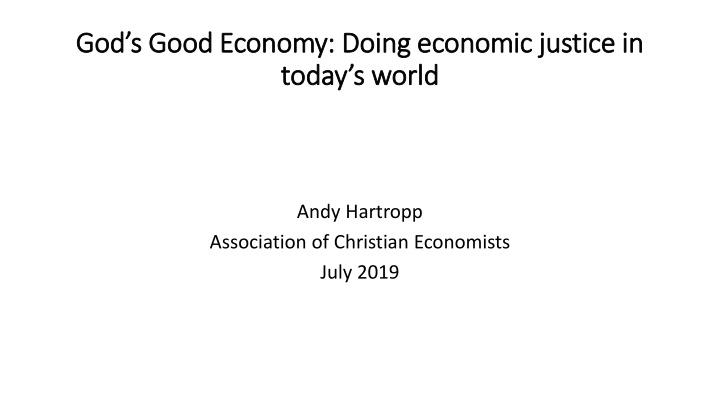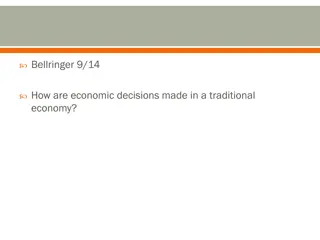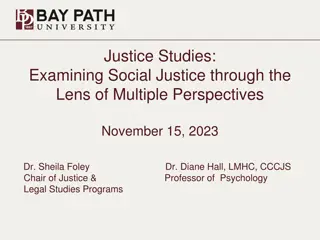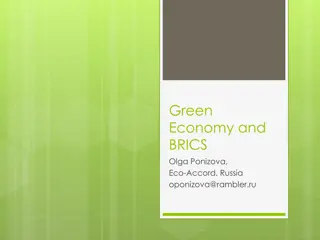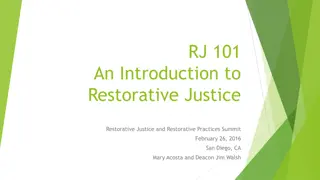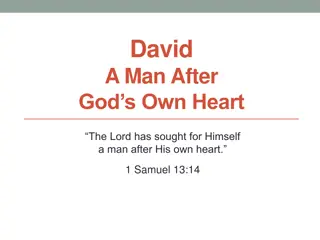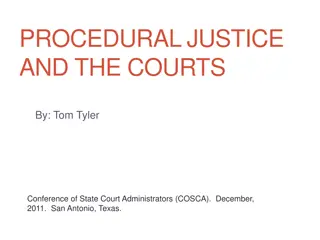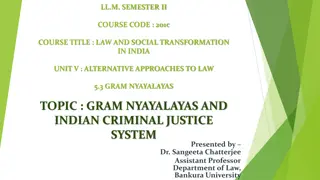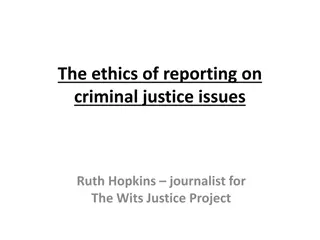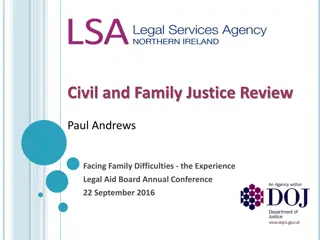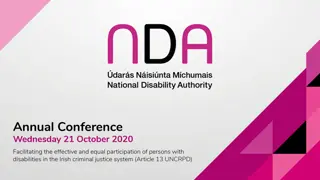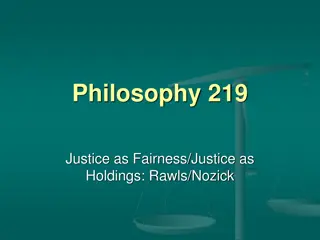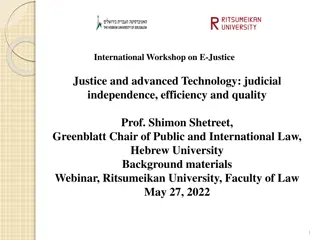Economic Justice in God's Economy Today
Biblical perspective on economic justice in today's world, rooted in God's character and emphasizing fair treatment, care for the poor, and quality relationships. Understand the significance of aligning economic practices with God's will for human flourishing.
Download Presentation

Please find below an Image/Link to download the presentation.
The content on the website is provided AS IS for your information and personal use only. It may not be sold, licensed, or shared on other websites without obtaining consent from the author.If you encounter any issues during the download, it is possible that the publisher has removed the file from their server.
You are allowed to download the files provided on this website for personal or commercial use, subject to the condition that they are used lawfully. All files are the property of their respective owners.
The content on the website is provided AS IS for your information and personal use only. It may not be sold, licensed, or shared on other websites without obtaining consent from the author.
E N D
Presentation Transcript
Gods Good Economy: Doing economic justice in God s Good Economy: Doing economic justice in today s world today s world Andy Hartropp Association of Christian Economists July 2019
The Big Picture The Big Picture Creation Fall Redemption New Creation (or Eschatology) These are like four acts in a play/drama (but in this case real life, obviously!) The created/material order is good. So, economic life is a good thing! it s not bad, or even morally neutral. E.g. 1 Tim.4:4-5. But the Fall has damaged all of our relationships and so this impacts crucially on economic life: Relationship with God: e.g. money as a rival god (Matt.5:24) Relationship with one another: e.g. damage to economic relationships Relationship with the world around us: e.g. pollution; loss of stewardship
A biblical understanding of economic justice: A biblical understanding of economic justice: Rooted in God s own character: He is righteous and just (Ps.11:7; 48:10f; 89:14; Deut.32:3f) God loves justice (Ps.11:7; Is.61:8) (For detail on all this material, see Andrew Hartropp, What is Economic Justice? Biblical and Secular Perspectives Contrasted; Carlisle: Paternoster, 2007.)
A biblical understanding of economic justice: A biblical understanding of economic justice: Four aspects: (1) Economic justice means treating people appropriately, according to the norms given by God E.g. justice ( mishpat ) in measures of length or weight or quantity (Lev.19:35; Deut.25:13-16; Prov.11:1; Mic.6:11) Do not hold back the wages of a hired worker overnight (Lev.19:13) Give to the priests what is just/due ( mishpat ): their due share of sacrifices; first-fruits of grain and so on (Deut.18:3ff) No perversion of justice or bribes (Deut.16:19; Eccl.7:7) These norms are for human flourishing (Deut.11:13-15; Ps.1; 37)
(2) Economic justice includes a particular emphasis on justice for the poor and needy Based on the way that God Himself executes justice ( mishpat ) for the fatherless and the widow (Deut.10:18) E.g. The justice due to the sojourner or the fatherless; don t take the cloak of a widow as a pledge (Deut.24:17) Don t charge interest to the poor (Ex.22:25ff; Lev.25:35-37) Lend freely (Deut.15:1-11; Ps.37:26) Allow the poor to gather a share of the harvest (Lev.19:9f; Deut.24:19-22; Ruth 2:1-12) All this is because, fundamentally, it is God s will and pattern
(3) Economic justice is not only about slices of the cake (distribution) but about the quality of relationships: reciprocal responsibilities: including employer/employee (Deut. 25:4; 1 Tim.5:18; James 5:4) producer/supplier retailer/consumer
(4) With regard to distribution, economic justice means that everyone participates in God s blessings, including material blessings Deut.14:28f bring all the tithes, so that all the people eat and are satisfied: including the Levites [who have no physical land], the sojourners, the fatherless and the widows]; cf. Deut.8:10 Deut.16:11,14 all the people rejoice before the Lord, including the sojourners, the fatherless and the widows The emphasis is not on numerical equality but on everyone (See also Michael Rhodes et al, Practicing the King s Economy: Honoring Jesus in how we work, earn, spend and save, Grand Rapids, MI: Baker, 2018)
A biblical understanding of economic justice A biblical understanding of economic justice (1) Economic justice means treating people appropriately, according to the norms given by God Economic justice includes a particular emphasis on justice for the poor and needy Economic justice is not only about slices of the cake (distribution) but about the quality of relationships With regard to distribution, economic justice means that everyone participates in God s blessings, including material blessings (2) (3) (4)
Gods Good Economy: God s Good Economy: Doing Economic Justice in Today s World Doing Economic Justice in Today s World (forthcoming: IVP, August 2019) Introduction 1. What is Economic Justice? Part 1: Doing economic justice in our own relationships 2. 3. 4. Doing Justice as Consumers Doing Justice in the Workplace Church Communities: Beacons of Economic Justice
Part 2: Doing economic justice in and through 5. 6. 7. Firms and Corporations Banks and Other Financial Institutions Wider Society: Nationally and Globally Epilogue
Two goals: Two goals: * * * * Equip Equip Subvert. For example: Subvert. For example: In God s good economy, everyone has a responsibility to do economic justice. (The Biblical basis for this is clear and consistent.) So, economic justice cannot be delegated to the state or the government. The principles of economic justice can be applied all the way across the left-right political spectrum. (Subversion of those Christians who make a prior commitment to a particular point on that spectrum.) Economic justice is always relational. It can never be solely a matter of the situation or the state of things. So, reciprocal (two-way) responsibilities are vital.
Ethical shopping? I certainly believe that ethical/moral principles should guide our behaviour as consumers. But ethical shopping typically involves: (a) measurement (e.g. ethical ranking or ethical scorecard ) (b) choice of one s own ethical preferences Both (a) and (b) are deeply flawed. God gives us very definite norms and standards: either we treat people according to these norms, or we don t. And ethical preferences suggest moral relativism, which has no place in the Bible. Far better: the insistent and consistent biblical commands do justice and cease injustice .
